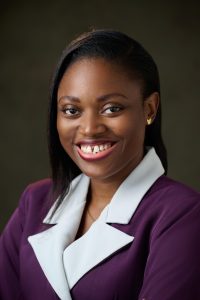- 1 January, 2021
- Posted by: Jane Oluwadare
- Categories: Neurodivergence, PHRONESIS Lighthouse, Productivity
Neurodivergence?? Care to share few nuggets?
— Love Surgeon??❤️ (@iam_Tommik) December 19, 2020
Neurodivergence speaks to the fact that people’s brains are structured differently. The “majority” are neurotypical. The non-typical group (neurodivergents: autistic people, people with ADHD, dyslexia, dyspraxia, BPD, and a host of learning/mental “disabilities”) have different strengths and weaknesses.
The concept of neurodivergence pushes for acknowledging them as people who need a different sort of support, but can function as well. Their inabilities may not be observable at the first glance, but should be acknowledged, and their strengths (when acknowledged and pressure to appear neurotypical is taken off) can actually propel humanity through an innovative phase. Most of the ground-breaking innovators, inventors, and disruptors in history were neurodivergent, and it goes to show how much we should encourage rather than suppress them. Make room for them in society, and allow for success: in workspaces, in educational systems, in policies.
It is a call to open the doors to allow for people to achieve the same goal in a different manner, seeing other people as individuals, and not just productive units.
But all that is just one side. The flip side to inclusion is showing neurodivergents how to integrate with a largely neurotypical society. How to work around their own neurology, “default settings” and liabilities to achieve the same outcomes by taking paths unique to their own strengths so that they do not wallow in burnout in a bid to appear normal.
It means strength-based coaching, knowledge-oriented play, mental support sessions, community etc.
It’s what I do, it’s who I am, and I am happy to show others the way.
Absolutely great, society should embrace them, make the use their ability uniquely to them….they may even feel left out, unmatched if they try to follow the society in bid to appear normal?
Thanks
— Love Surgeon??❤️ (@iam_Tommik) December 20, 2020
What’s the psychological effect on this kind of individuals whose parents are less informed to probably take them to special school or employ expert in the field help their children out, what usually happen to them in this kind of situation?
— Love Surgeon??❤️ (@iam_Tommik) December 20, 2020
The children grow up feeling less than human (or worse than their mates). The constant anxiety and criticism sets them up to look like “lazy children with lots of potential but unwilling to to their best” ( sound familiar? It’s a huge problem). They grow into unsure adults with varying degrees of esteem issues, “anger problems”, make a lot of ” mistakes”, have strained relationships etc.
They struggle at work, with building a career… Sometimes they try to fix the growing sense of helplessness with an addiction that boosts dopamine secretion (low dopamine levels is the common condition for neurodivergents).
Sometimes they hit burnout, and just give up. Sometimes (rare cases), their struggles in adulthood lead them to stumble unto a diagnosis (this was me).
The low awareness and lack of acceptance hurts everyone. This is not even a call for special schools. Most of them would survive the normal school system if teachers are well trained. For example, eye-contact does not show learning – testing does. But some teachers would go as far as to hit children because they’re not making eye contact (even though the child was listening). When a neurodivergent (ND) child wants to survive that sort of situation they learn to forgo actual learning for social blending, so they’d expand their “limited energy” ( let’s use this term for simplicity) to appear to blend in – which means that they’re most likely not taking in anything you’re teaching. Then you wonder why they can’t “retain anything”. They can. You’re just messing with their neurology because of your ego and your need to feel like the centre of the class. When teachers learn to treat each child as an individual with strengths, likes, dislikes, weaknesses, and humanity, they’d be able to coach their students through the learning process to produce amplified results and promote applied contextual learning (which is at the top of the learning pyramid) as against simply replicating what they (the teacher) knows. Teaching is meant to equip your students to live great lives in the world they would be living in, not to replicate yourself in a student. The word you were born into (like Dr. Cindy Trimm would say) does not exist anymore. Stop raising/teaching children for worlds that do not exist anymore.
We don’t need more/special schools. That would simply reinforce the existing discrimination, and discourage diagnosis. We need inclusion and acceptance and support.
Absolutely great, society should embrace them, make the use their ability uniquely to them….they may even feel left out, unmatched if they try to follow the society in bid to appear normal?
Thanks
— Love Surgeon??❤️ (@iam_Tommik) December 20, 2020
Jane Hadassah OLUWADARE
Hadassah bath YHWH
The Father’s Daughter


